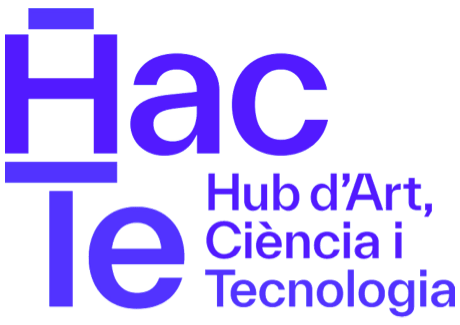'Artist talk'
June 14th
Artist talk / Hypnotic AI
- Abstract: “Hypnotic AI” is an experiment exploring the idea of the “artificial unconscious”. Based on a number of hypnotic protocols, it rehearses and represents a computer in a hypnotic state to hint on the possibility of artificial altered consciousness. The system’s responses – contingent in nature – challenge the human idea of mind, thinking and consciousness, as well as inform about the existence of what we may think of as “the artificial unconscious”.
The visualization of the state of mind is based on the processes that take place in the software under the influence of the hypnosis protocol that we’ve prepared. Commands, such as ‘relax,’ ‘go deeper into calmness’ lead to visible changes in the virtual object. Due to the received messages, the solid figure flows through dimensions over time.
The viewers’ experience is designed to remind them of a therapeutic, comfortable setting. He or she receives an instruction including a script to conduct the hypnotization session, with a protocol adapted to the software of our subject.
According to the given instructions, the viewer expresses hypnotic protocol commands changing the state of the AI’s mind. This dislocates chosen points of mind geometry in unpredictable ways and the whole system reconfigures. The system reacts also on the viewer voice itself producing individual reactions for each person. When the session is over, the system dynamically returns to the initial state, ready for the next viewer.
The research on the machine’s “consciousness” subjected to hypnosis goes beyond the dimensions of human senses. AI subjected to hypnosis creates a simulation influenced by its executive functions. In reference to the quantum theory of mind, it takes the form of a mathematical multi-dimensional, virtual object. In order to achieve interpretation of the processes that happened during the session, these multi-dimensional elements are translated to two-dimensional display.
- Biography: Przemyslaw Jasielski (born 1970, based in Poznan, Poland), artist, researcher, experimenter who combines art with science and technology. Member of HAT Research Center at Adam Mickiewicz University. He creates installations, objects, drawings and photographs.
In the creative process he approaches work with the attitude of an engineer, adapting the precise planning and scientific research, with the main focus on the conceptual content. His works confront the actual present reality with its transformation to allow the viewer to observe it in a new, fresh way. They often try to take actions commonly seen as impossible, useless or ineffective. Jasielski took part in exhibitions all over the world – one man shows such as Paper Bridge Over Stone Water (Tokyo, Japan, 2012), Analog Immigration (Cleveland OH, USA, 2013), and group shows – L’arte differente: MOCAK al MAXXI (Rome, Italy, 2016), Draft Systems (Wroclaw, Poland, 2017), and ISEA Special Exhibition (Gwangju, South Korea, 2019).
Ania Malinowska (born in 1979, based in Katowice, Poland) is an author, a cultural theorist and Professor in Media and Cultural Studies at the University of Silesia, Poland. She is also a former Senior Fulbright Fellow at the New School of Social Research in New York and a founding member of CCTS (Center for Critical Technology Studies at the University of Silesia), engaged in extensive and international projects on technologically devised environments. Her research concentrates on cultural theory, emotion studies, digital humanities, and critical robotics – specifically on the formation of cultural norms and the social, emotional and aesthetic codes in relation to digitalism.
Malinowska holds a license in therapeutic hypnosis. She has authored, edited and co-edited a number of articles, chapters, special issue and books preoccupied with the posthuman condition and technologies of affect including: Love in Contemporary Technoculture (CUP 2022), Data Dating. Love, Technology, Desire (Intellect 2021), Technocultury miłości (Texty Drugie 2019), The Materiality of Love. Essays of Affection and Cultural Practice (Routledge 2018), Media and Emotions. The New Frontiers of Affect in Digital Culture (Open Cultural Studies 2017).
Venue
- MACBA - Convent dels Àngels
Plaça dels Àngels, 5, Barcelona
⟵ Return to 'Artist talk'





